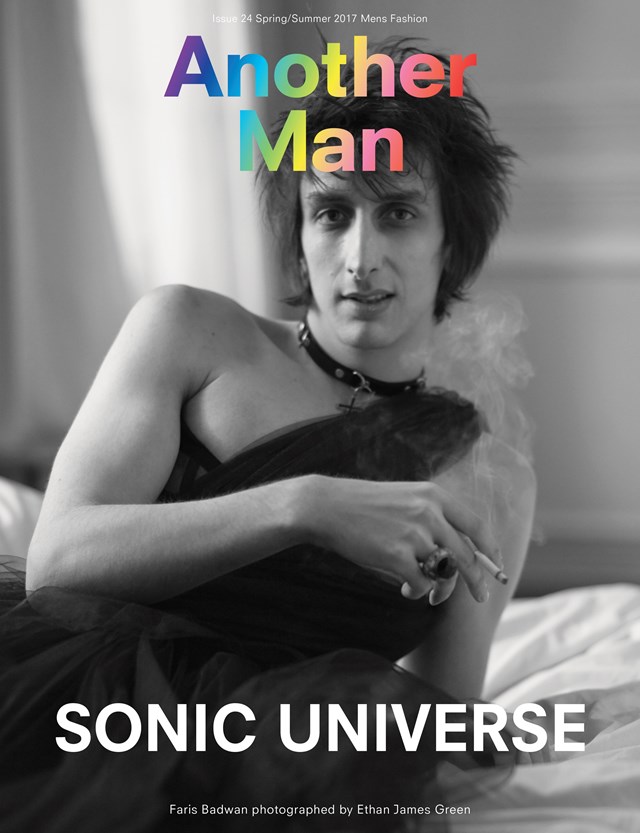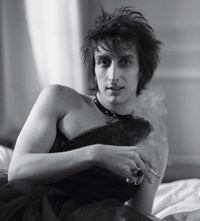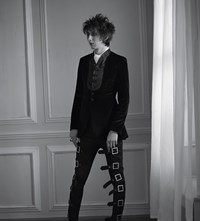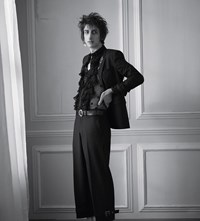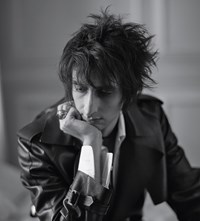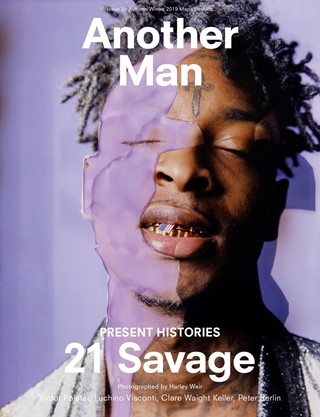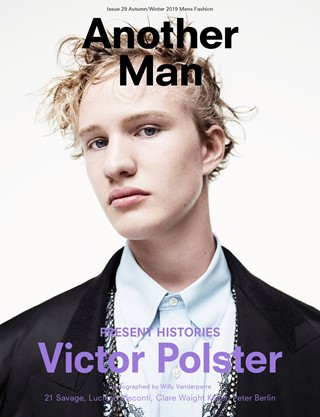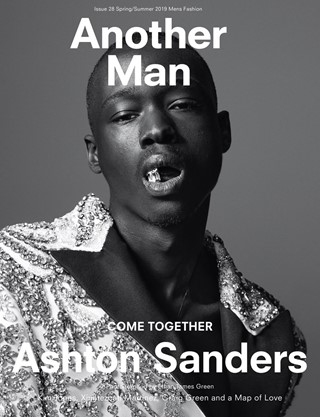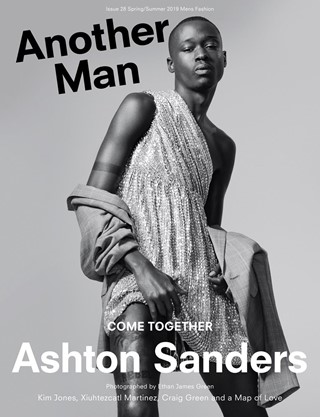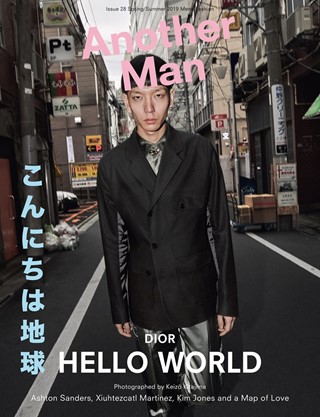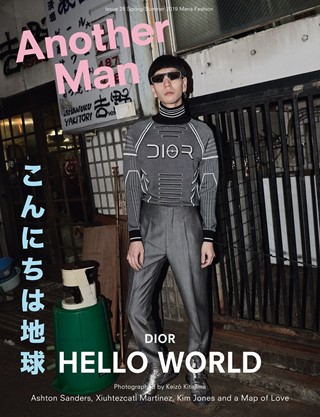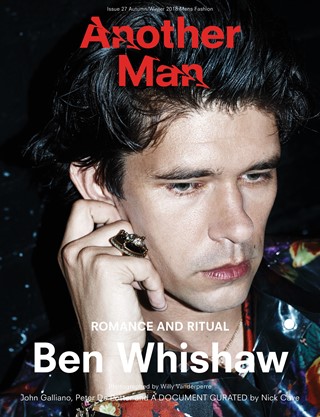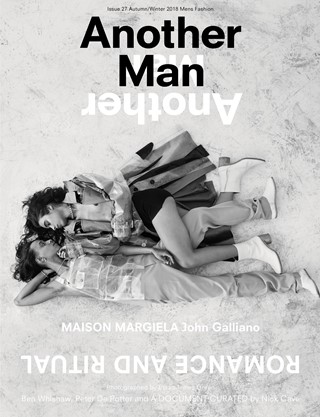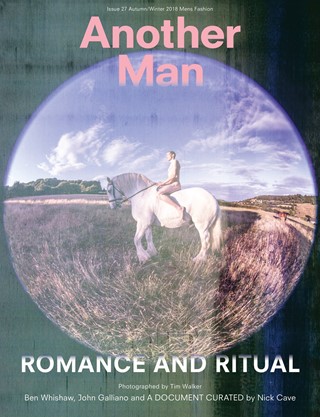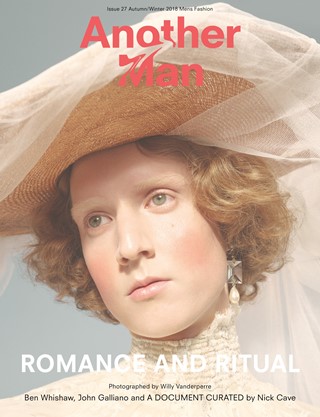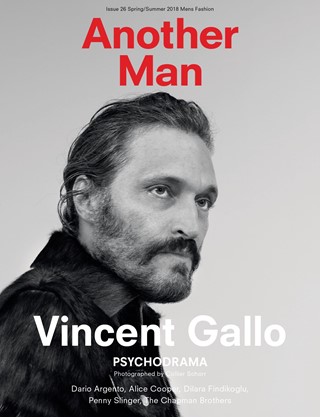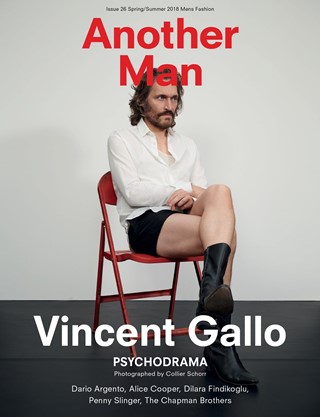Faris Badwan
BACK IN THE STUDIO WITH THE HORRORS, FRONTMAN Faris Badwan IS CHANGING THE RECORD AGAIN.
The first time I saw The Horrors perform was a decade ago in a dingy Soho basement, at the indie clubnight White Heat. Lead singer Faris Badwan was wearing a black and white polkadot waistcoat with obscenely low-slung, skin-tight drainpipes, his hair cartoonishly backcombed, his eyes ringed with black liner. He loomed above the audience with a comical menace – back then, with monikers like Spider Webb and Coffin Joe, heavy eye make-up and heavy guitars, comical menace was The Horrors’ forte.
“We didn’t know how to play our instruments – at all,” remembers Badwan, and they didn’t, but NME put them on its cover anyway, then-editor Conor McNicholas explaining that, “They look awful and sound terrible, but so did the Sex Pistols.” The technical precision of the music was certainly secondary to the broader aesthetic of the band – in terms of clothing, yes, but also the impact of their performance: bratty, gothy garage rock came complete with Badwan using bootpolish to blacken his hands before smearing them over the audience. It was like watching a penny dreadful version of the Ramones, and those gigs, complete with Lux Interior intonation and growling covers of Screaming Lord Sutch’s Jack the Ripper, inspired legions of cultish acolytes as enamoured with their gothic styling as they were with the musical intensity.
Today, sitting in Banner’s, “Crouch End’s favourite family restaurant”, and surrounded by yummy mummies, Badwan is a world away from those early shows. Dressed in a cosy red jumper, his hair floppy now, he inspects the lunchtime menu, which is decorated with illustrations by local children. Reggae covers of The Beatles’ greatest hits play in the background. It is, however, conveniently located just down the road from the church-cum-studio where Badwan and the other Horrors – Tom Cowan, Joshua Hayward, Joe Spurgeon and Rhys Webb – have been recording a new album for the past two and a half years.
At first, Badwan is reluctant to talk, anxiously stopping and starting sentences before self-consciously apologising. “Oh man, I have real extreme concentration issues,” he says. “When I’m in a busy place like this, my ADD goes nuts. Maybe if I get a drink, I’ll concentrate. I’ll try my hardest.” He orders a double espresso; he has a coffee machine set up next to his bed, so he can easily drink five before he gets up in the morning. Badwan thrives on his frenetic energy – the same energy, he explains, that means he enjoys touring. He loves touring so much, in fact, that if he wasn’t in The Horrors, he thinks he’d probably start a band just to go on the road. The coffee arrives and he switches back on.
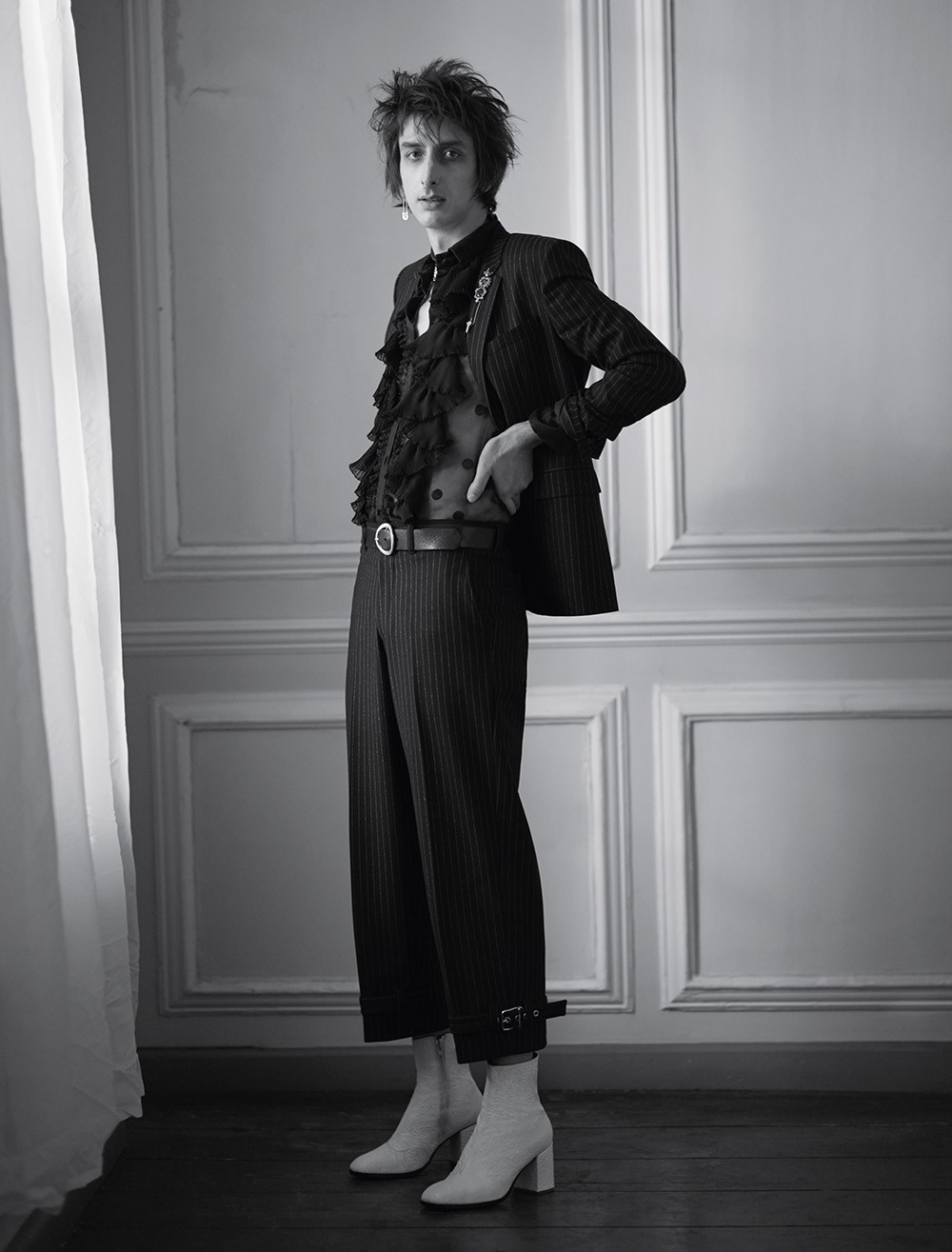
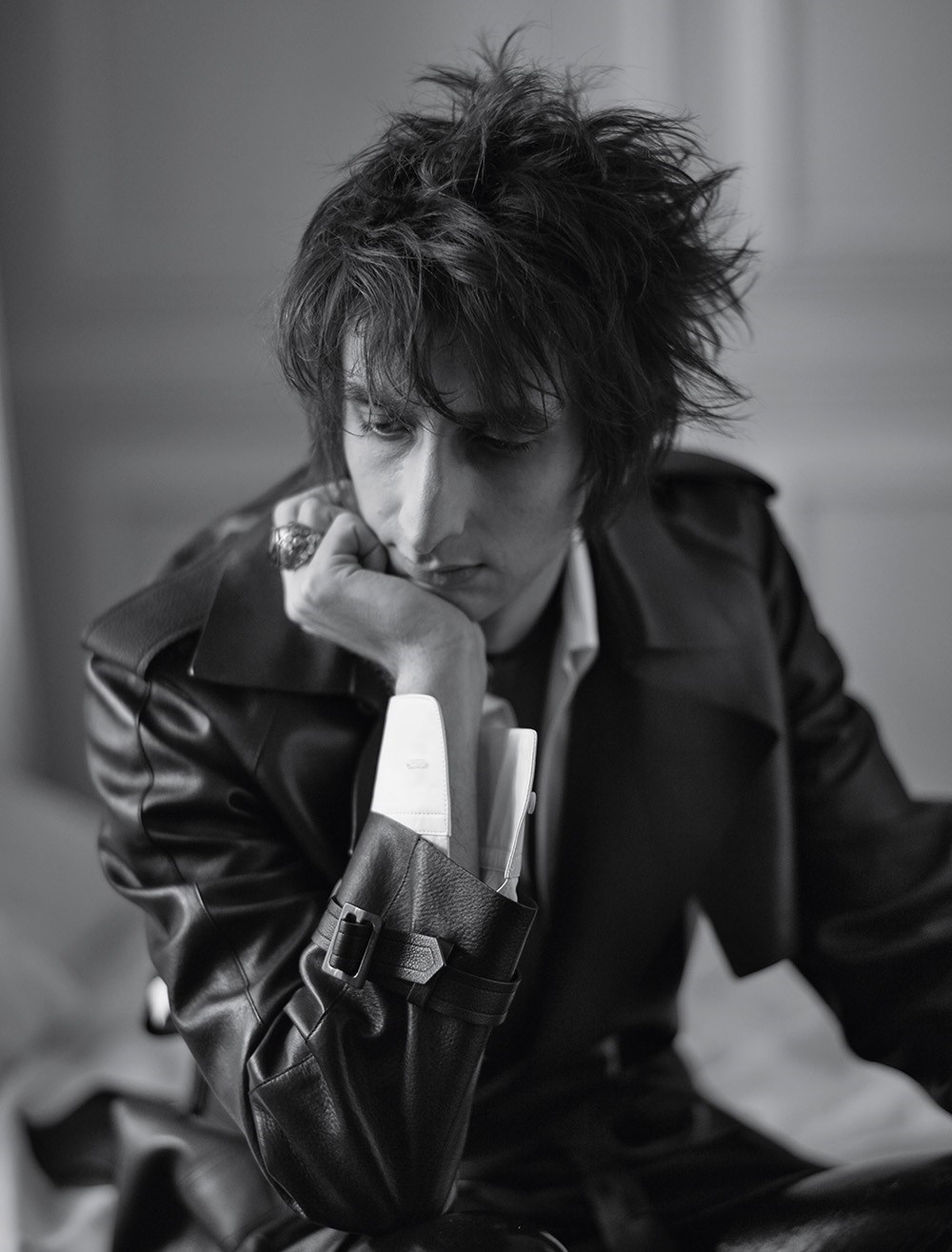
“Have you ever been to Cuba?” he asks. “I want to go before it gets shit. I like going to places like that, where it feels like you’re on the edge of change. There’ll be a moment where it’s about to get really bad where you can probably export a lot of the really good stuff.” He’s wide-eyed, deadpan and, for the record, definitely talking about coffee.
Music folklore has it that The Horrors formed around Southend-on-Sea’s music scene, alongside the likes of These New Puritans, Ipso Facto and Neil’s Children, but the reality is more prosaic. While Rhys Webb, the bassist, was co-founder of Southend’s renowned Junk club, Badwan and keyboardist Tom Cowan both went to Rugby School, where Cowan wrote the name of a website, garagerockradio.com, on Badwan’s hand when passing him in the art department.
“We formed this big idea that, when we left school, we would form a garage band that didn’t play any songs from after 1966 and always wore black” – Faris Badwan
“We formed this big idea that, when we left school, we would form a garage band that didn’t play any songs from after 1966 and always wore black,” he remembers. Then, at White Heat he met Josh Hayward, the guitarist and another Southend-onSea native, and struck up conversation simply because “I was kind of stunned by the amount of make-up he was wearing; I didn’t understand how someone could wear that much and not get beaten up.”
Year one for The Horrors was spent in a frenzy of sell-out shows with queues down Oxford Street outside The 100 Club. Legendary director Chris Cunningham even came out of a self-imposed seven year exile to film their first – and typically gory – video, Sheena is a Parasite, starring Samantha Morton. But, by the time The Horrors released their second album, Primary Colours, in 2009, their B-movie aesthetic and proclivity for an organ drone had mellowed; the group eschewed their stage names and Cramps sensibility in favour of swirling psychedelic bliss – to much acclaim. The albums that followed, Skying (2011) and Luminous (2014), each resplendent with shoegaze and synths, felt similarly liberated.
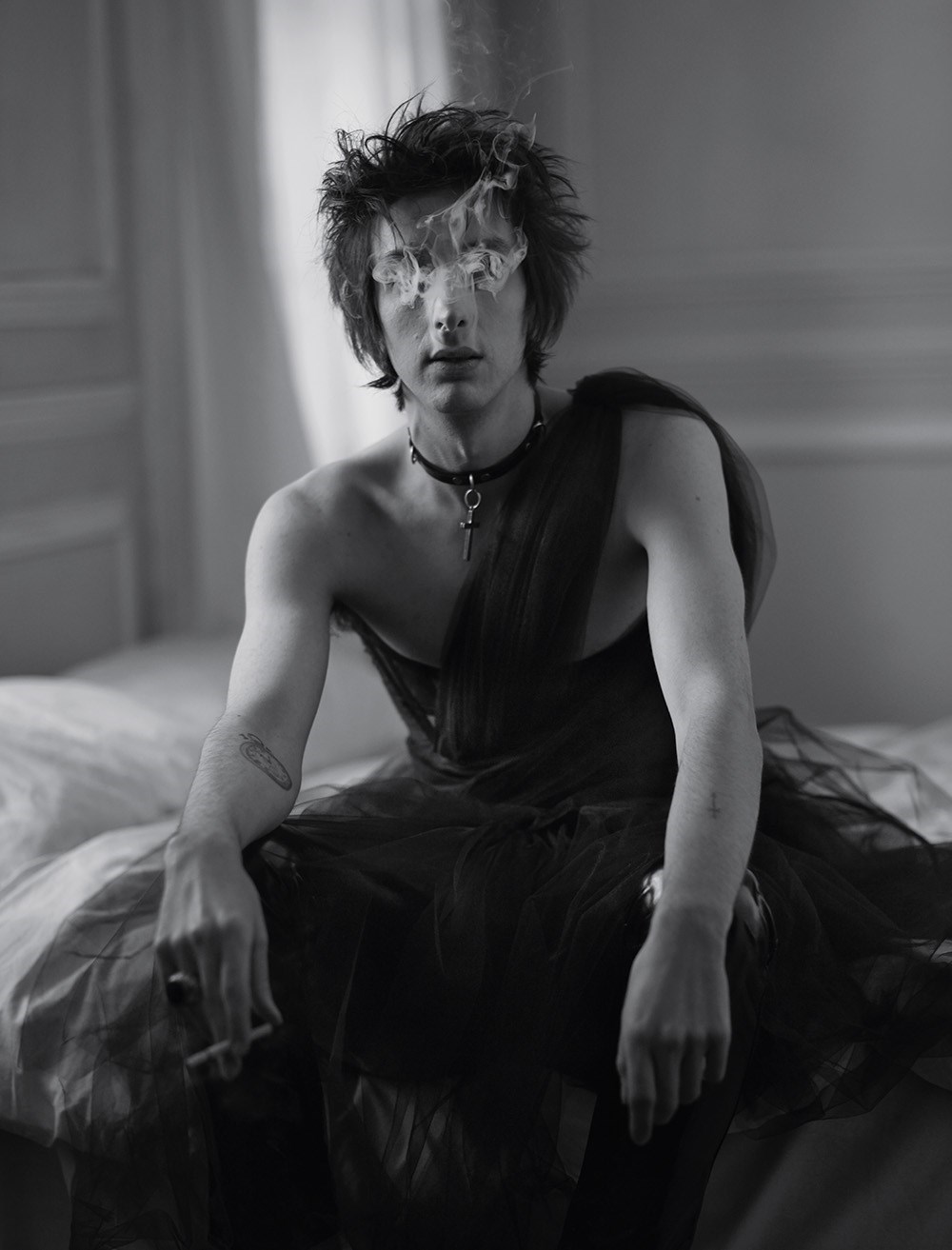
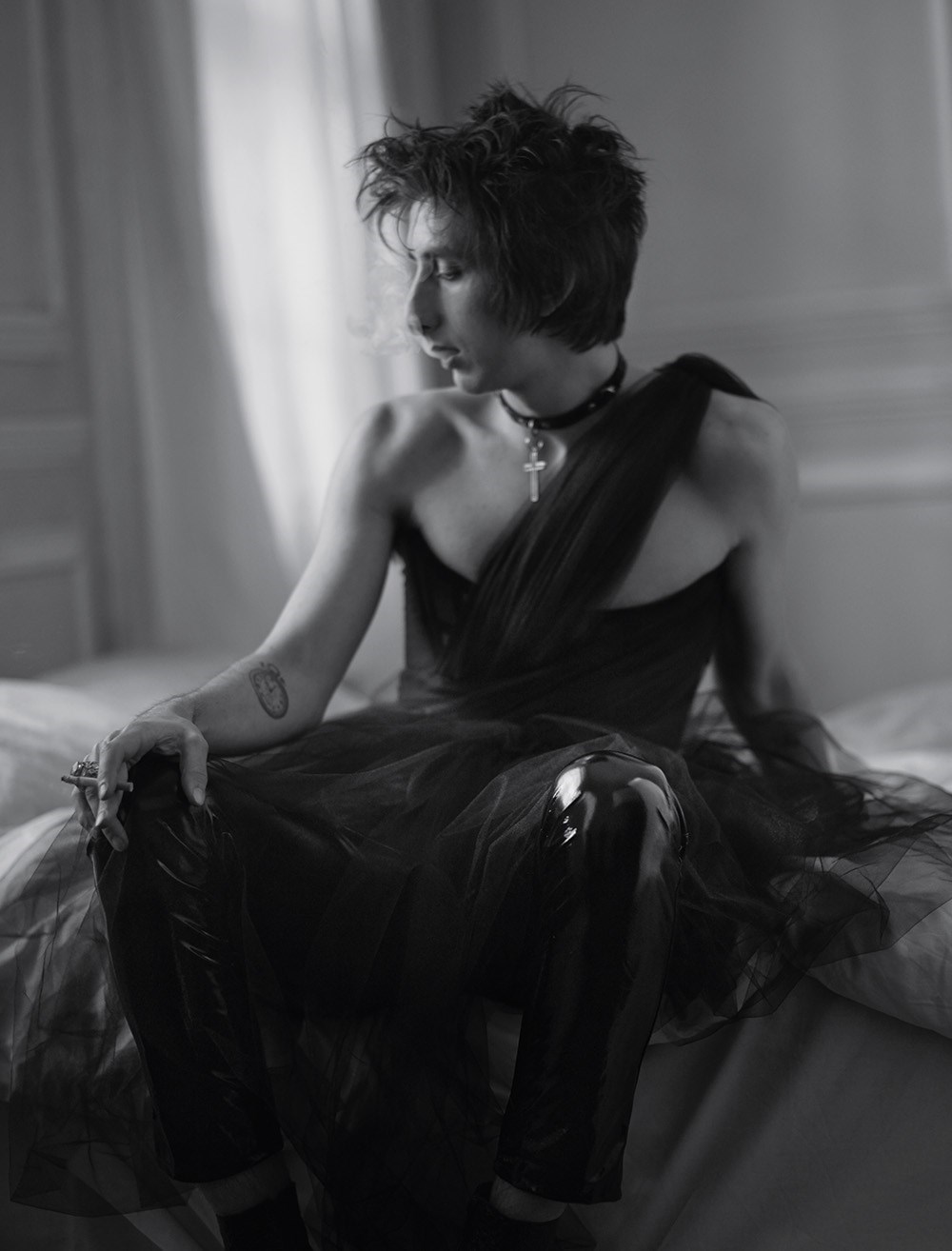
For his part, Badwan is matter-of-fact about this sonic evolution. “If you put five 18-year-olds in a room together and make them stay there for a couple of years, they’re going to change eventually,” he shrugs. Six years ago another major change came when Badwan partnered with his girlfriend Rachel Zeffira to form Cat’s Eyes, a compellingly poppy outfit devoted to Phil Spector-style girl groups and sugary melodies layered with sinister undertones (“The things we do when we’re together / If they ever knew / They would keep us apart” sings Zeffira on Drag, which might be a modern-day single from The Ronettes.) Cat’s Eyes went on to perform shows at the Vatican and Buckingham Palace, a drastic departure from cheap beers and sticky banquettes in Soho on a Tuesday night: “St Peter’s Basilica is fucking nuts inside; the ceiling is so high and it’s solid gold!”
Never one to reminisce, Badwan continues: “But I think sitting around and talking about the past is one of the worst things; there’s a lot more freedom in thinking about what you might want to do… The idea of transformation is always relevant. Ideally, if you’re being creative, you’re making things and transforming ideas from one thing to another, but I think that it’s easy to recreate what you’ve already done and kid yourself that it’s something new. I think you have to be quite militant about moving on.”
“Right now in the world, I think we’re at the point of a greater cultural shift than people realise... I feel like now things are reaching a good point again” – Faris Badwan
To help them, The Horrors have drafted in a producer on their new album to ensure, as Faris bluntly puts it, “we ditched songs that felt a bit repetitive”. That producer is Paul Epworth, an industry legend renowned for his award-winning work with Rihanna, Adele and Florence Welch. It’s an intriguing collaboration; any clues on what it’s sounding like?
“When you’ve been working on something for a certain amount of time, you feel like you should have certain things to say about it,” explains Badwan. “But really you haven’t spent any time thinking about what it is, you’ve just been doing it.” All he will say is that, the record – due for release this spring – bears little resemblance to the one they started out making. “I think we’re more democratic than most bands,” he says. “That makes the process a bit longer, but it means you also don’t really know what the end result is – which is a good thing, I guess. Right now in the world, I think we’re at the point of a greater cultural shift than people realise. Maybe it’s a ten-year cycle of things being exciting. I feel like now things are reaching a good point again.”
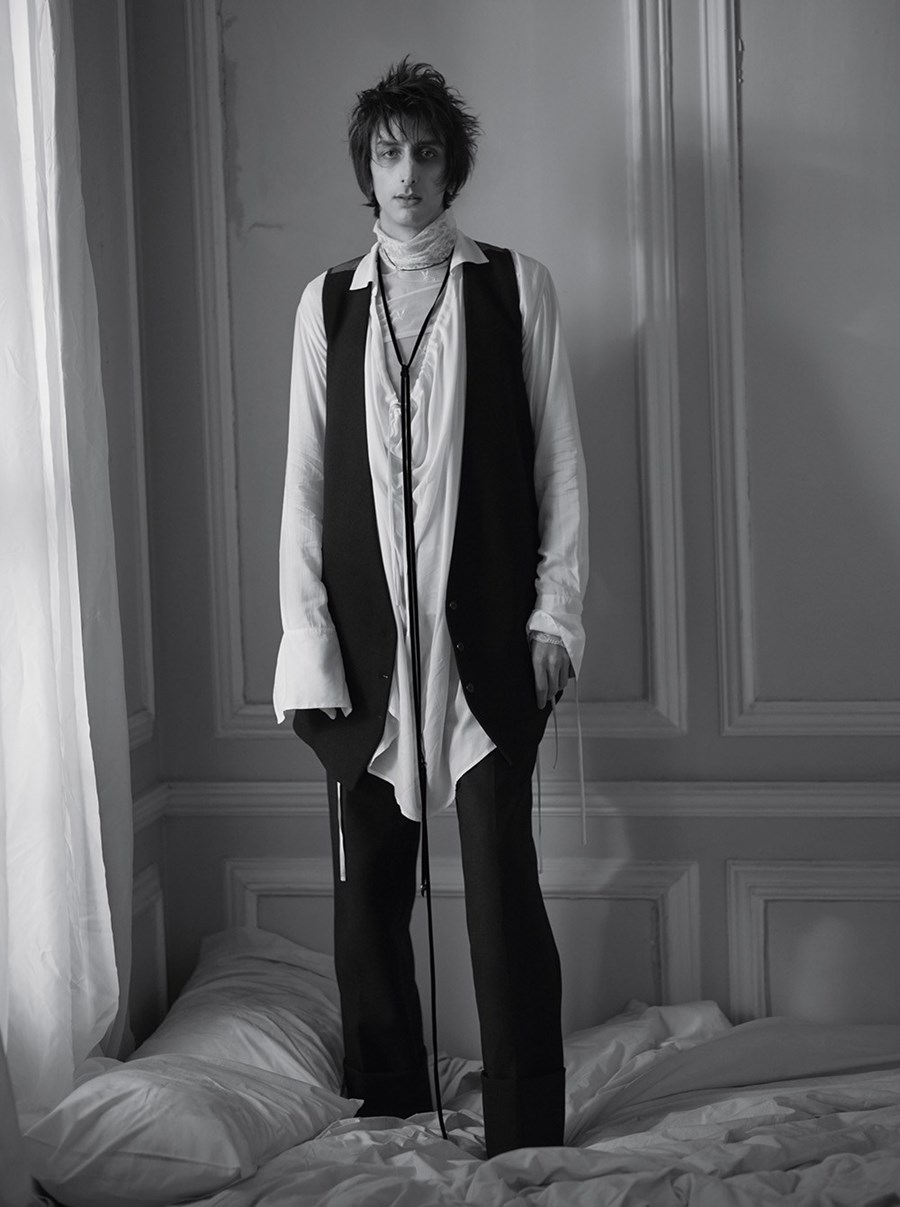
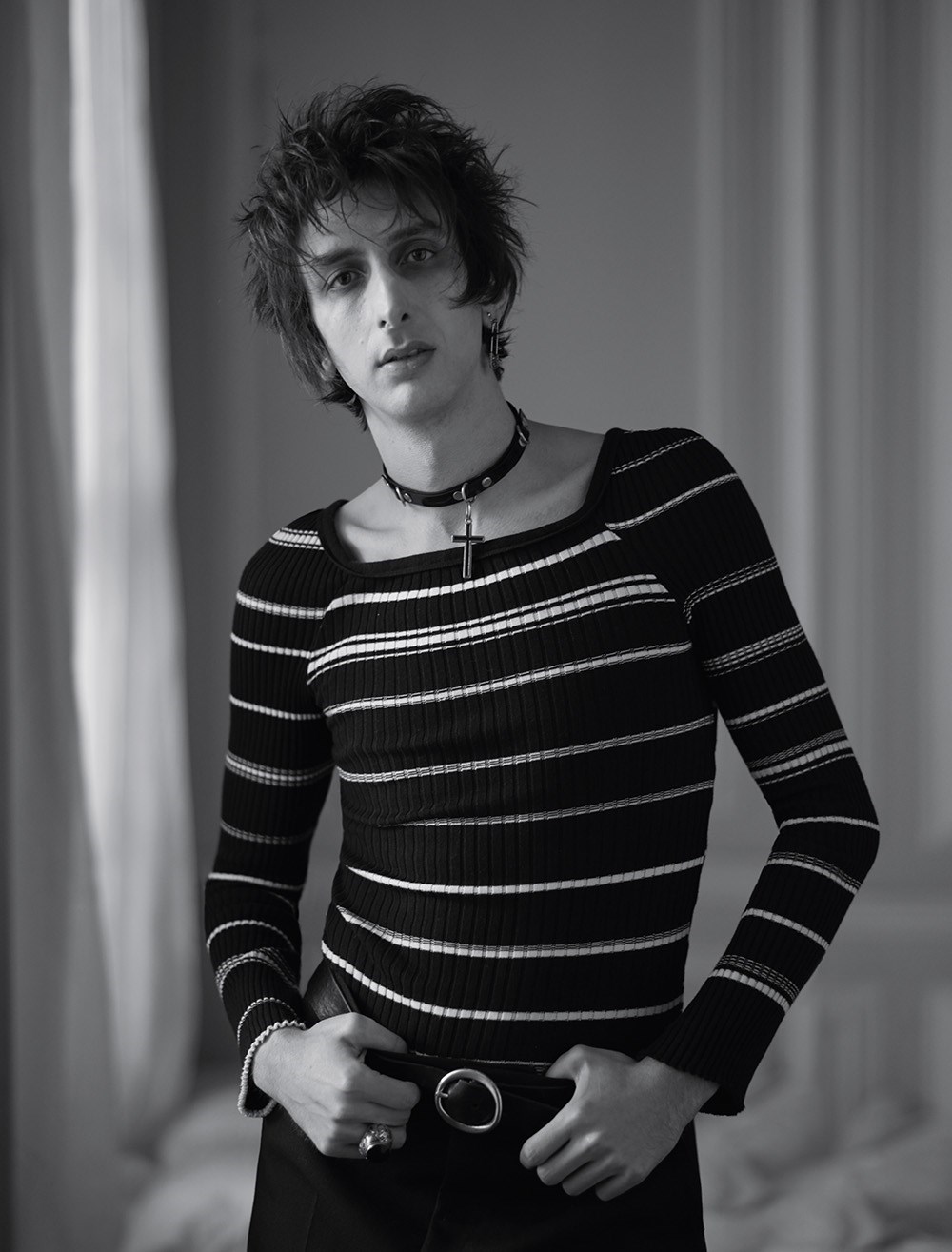
We decamp outside for a cigarette and more coffee. He seems calmer here, where it’s quiet, and we talk about the phenomenon of Celebrity Big Brother and how he’s watched the Angie Bowie clips hundreds of times. “I was asked to be on it once!” he laughs, deciding he’d prefer to do Deal or No Deal because, he says, “Noel Edmonds is the master of reinvention – did you know he’s got his own pet psychic line?”
A master of reinvention himself, does Badwan worry about the preconceived ideas that might surround the album or his own career? Do those Dickensian indie costumes of yore ever haunt him? “I don’t think perception means anything because it’s so relative,” he says. “Thinking about perception is like thinking about the past; it goes nowhere, just onto a loop. Maybe I should think about that stuff more, but I don’t find it enjoyable, so I don’t. I spend a lot of time avoiding things I don’t enjoy.”
Hair David Harborow at Streeters; Make-up Hiromi Ueda at Julian Watson Agency using Sisley Skin Care and Cosmetics; Set design Andrea Cellerino at Streeters; Photographic assistants Jared Black, Nicholas Riley-Bentham, Pedro Faria, David Gilby; Digitial technician Nickolas Rapaz; Styling assistants Reuben Esser, James Campbell, Rhys Davies; Make-up assistant Libby James; Set design assistant Jess Coleman; Production Sylvia Farago Ltd; Special thanks Annabel Craig.
